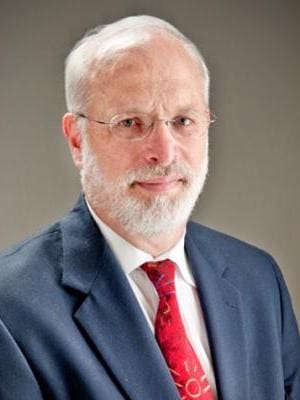I recently taught an adult class on the topic of miracles.
In Judaism, some of the rabbis felt that miracles were supernatural events. Others, like Nachmanides, felt that miracles were natural occurrences and their timing made them special. In other words, when we needed such-and-such to happen, it happened.
Rabbi Samson Raphael Hirsch taught that the greatest miracle of all was the survival of the Jewish people. Rabbi Mordecai Kaplan, founder of Reconstructionist Judaism, felt that a belief in miracles should not be part of modern Jewish thought. The Baal Shem Tov, founder of Hasidim, felt that miracles were everywhere, but that we put on blinders and aren’t able to see them.
This last thought really intrigued me. I know a woman who has battled metastatic melanoma for more than 10 years. Seven years ago, her family got together and held a Passover Seder, which her kids euphemistically called the “Last Supper.” Her continued health and well being are nothing short of a miracle in my opinion.
On Thursday, I shared these thoughts with a group of economically poor people who were being fed at First Presbyterian Church in Greensboro, N.C., as part of the Hot Dish and Hope program. Our congregation serves food there twice a month. Our community is grateful to Sidney Batts, Sheron Summer and First Presbyterian Church for their wonderful leadership of this program.
I ended my message of hope with the idea that every morning that we wake up is a miracle, and that perhaps the greatest miracle of all is life itself.
People responded warmly to my message. Except one person. This one man came up afterward to me and said rather aggressively that I was wrong and that the greatest miracle of all was that Jesus died for our sins. He wanted to give me a testimony in order to save my soul. The same man has accosted my colleague Rabbi Andy Koren on previous occasions.
Having pretty thick skin, I was able to slough this off.
However, I often receive emails, letters and oral testimonies from supposedly well-meaning Christians. Once on the Sabbath, the cars in our parking lot had leaflets put on them. The leaflets encouraged us to accept Jesus.
On Yom Kippur, after an article in the newspaper in which the writer said Jews do not have a safety net in Jesus, my mailbox was destroyed. It was the only mailbox on the street to be destroyed, and it was destroyed purposely on the holiest day of the Jewish year.
I have an acquaintance to whom I have explained many times why Jews do not believe that Jesus was the Messiah. Nevertheless, he still wants me to explain to him what I do believe about the Messiah. One of these days, perhaps, I will. But I am hesitant to do so because I know this will lead to an unwanted testimony.
I simply do not get how being aggressive to others in supposed testimony of one’s faith encourages brotherhood and sisterhood. If you want me to respect you as a Christian, behave toward me and all people with justice and compassion. Partner to make our community better. Be part of a joint effort to bring more of God’s presence into this world.
A line from a movie a few years ago said, “Show me the money.”
To those who are so worried about saving my soul, I say, “Show me (by your own personal example) your kindness.”
Rabbi Jonathan Miller in Birmingham, Ala., responding to his governor’s dismissive remarks about those who aren’t Christians, quoted the Prophet Malachi: “Have we not all one father? Hath not one God created us? Why do we deal treacherously every man against his brother, profaning the covenant of our fathers?”
Fred Guttman is rabbi of Temple Emanuel in Greensboro, N.C.

